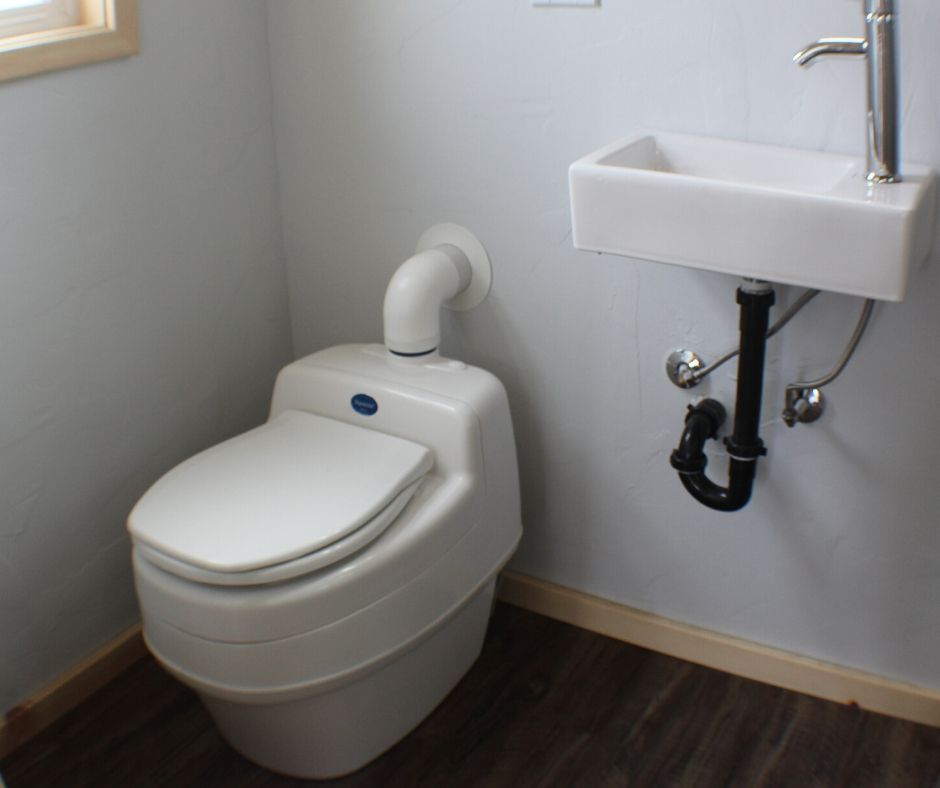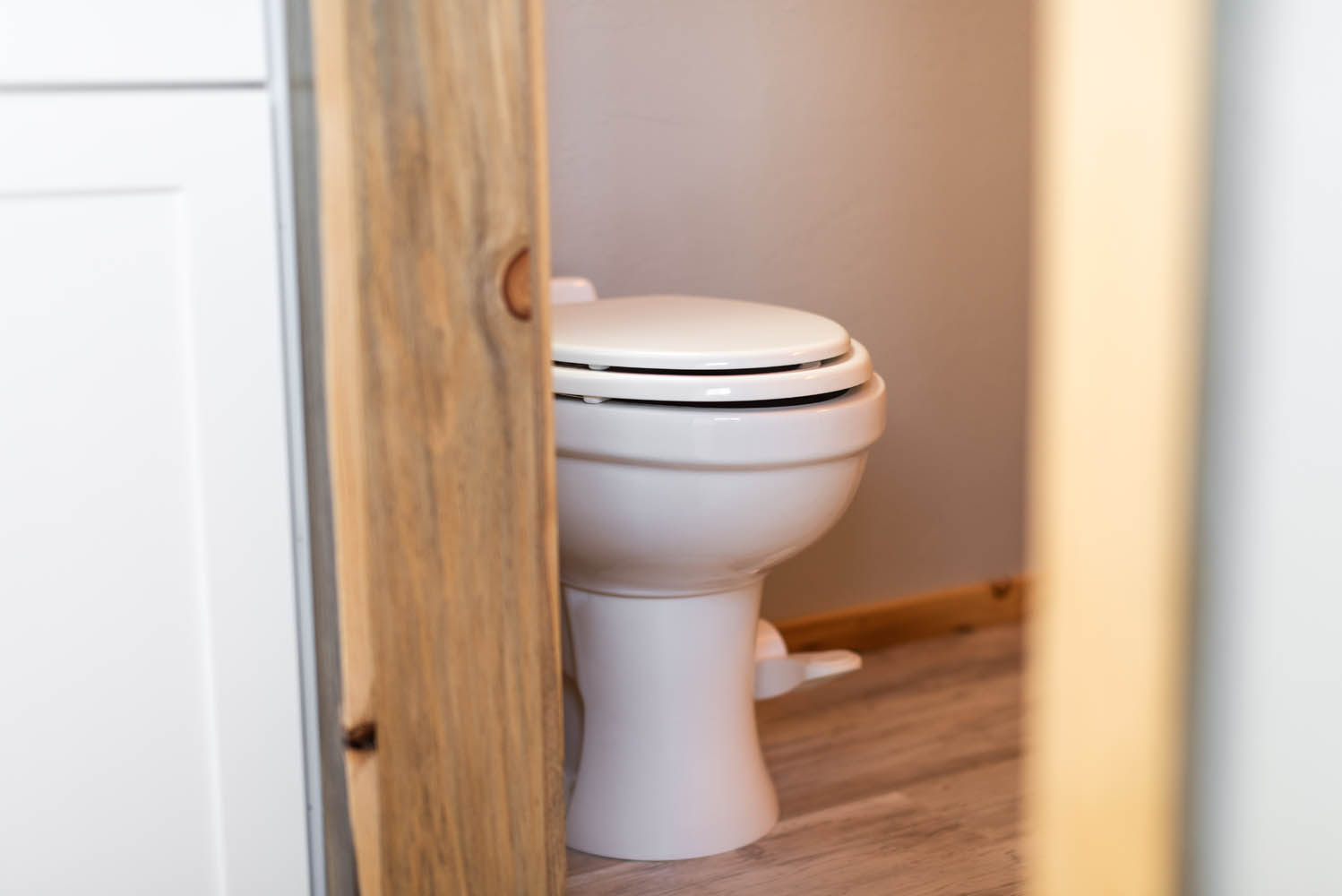
One of the easiest off-grid living options is using compost toilets. Fresh water is becoming a scarce resource in many areas, and if living off-grid (even temporarily), you may want to explore options that use no water. Having one installed in your tiny house on wheels means you could even eliminate having a black tank, and not have to worry about hooking up to a septic system.
Nathan, Tiny SMART House’s President & CEO, recommends the newer type of compost toilets as they are better for dealing with humanure. Nature’s Head and Separett have urine diverting designs, and are the ones we use and recommend to our clients. This means that the relative lack of fluids in the storage tanks help eliminate odor and enhance the complete and rapid composting of the solid waste. Older composting designs hold urine and solids in one tank, and need heat and rotation to help liquids evaporate. Since there is usually more liquid than can evaporate quickly, you need to add peat moss, coconut fiber, compost starter or sawdust. (Which means storing the sawdust, etc. Do you want to use valuable storage space on that?)
Composting toilets require almost no maintenance and are impossible to plug. Fans are used to dry out the contents, and are usually very quiet. Ventilation is required, and we make sure that the pipes are properly vented to the outside so you never smell anything inside your tiny home! Depending on the type of composting toilet you have, and how many people using it, it can be several weeks (or more!) for the solids bin to fill up.
If you decide to use your humanure as compost, be sure to learn how to take care of it properly. Solid human waste can pollute water. Don’t use it on any edible plants. Do use it on your pretty flowers! Lime will drastically reduce the time your compost needs to sit. Pee is easy, as (at the household level) it can be used directly (or slightly diluted) as fertilizer safely. Urine can go into a gray water system (with the shower or sink water), or it can be drained into a rock pit. To learn more about composting and how to properly compost humanure, Nathan recommends these two articles: “Hot Composting How-To Guide” and “How to Safely Compost Human Waste”
If, after using your compost toilet for a while, you decide it’s not for you – don’t worry! Here at Tiny SMART House we install a flange in case later you want (or need) to install a flush toilet.
Guest blog by Stacey Newman Weldon. When she isn’t busy helping people create their own tiny custom homes, you can find her inspiring others to discovering their sense of fun at Adventure Wednesdays
